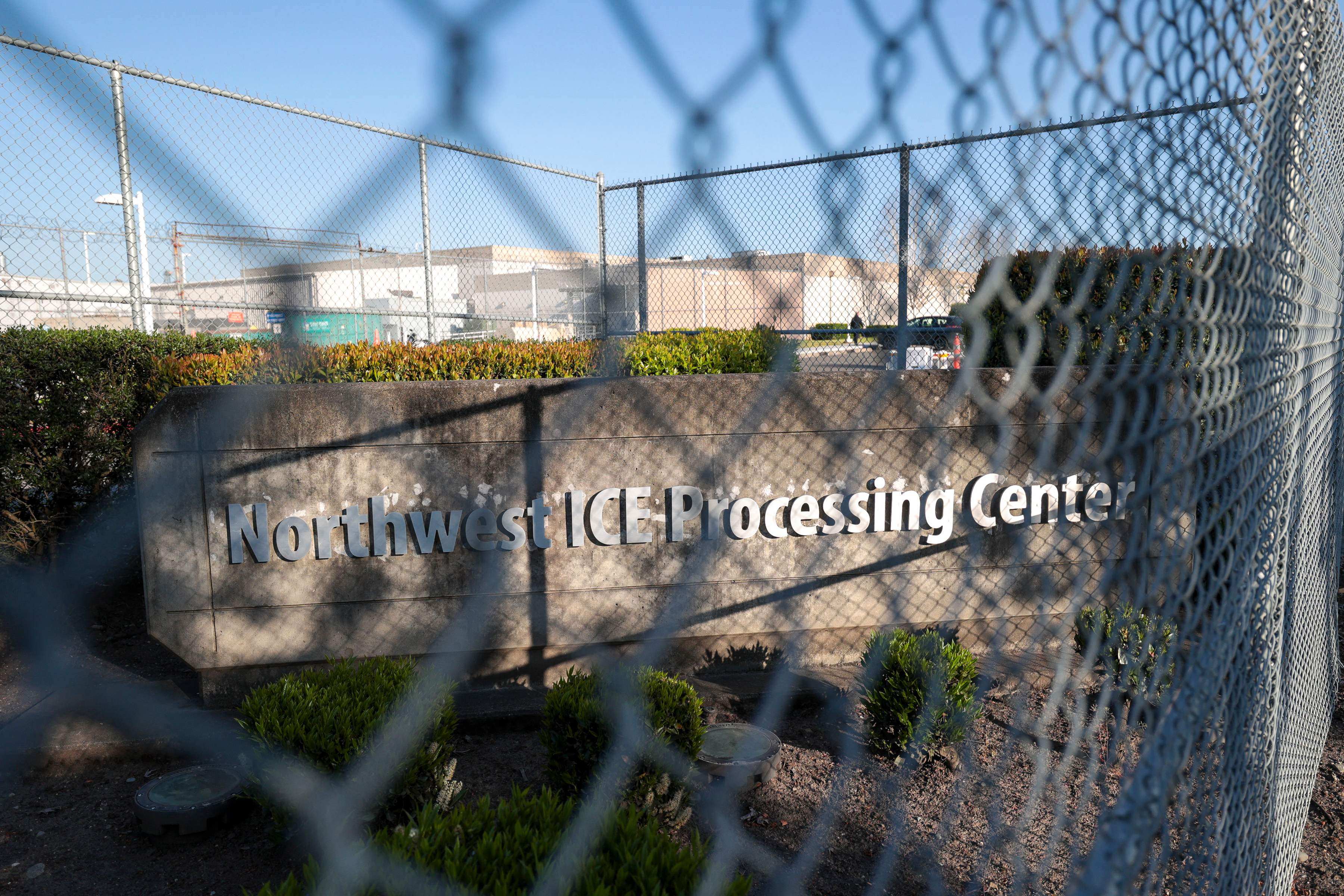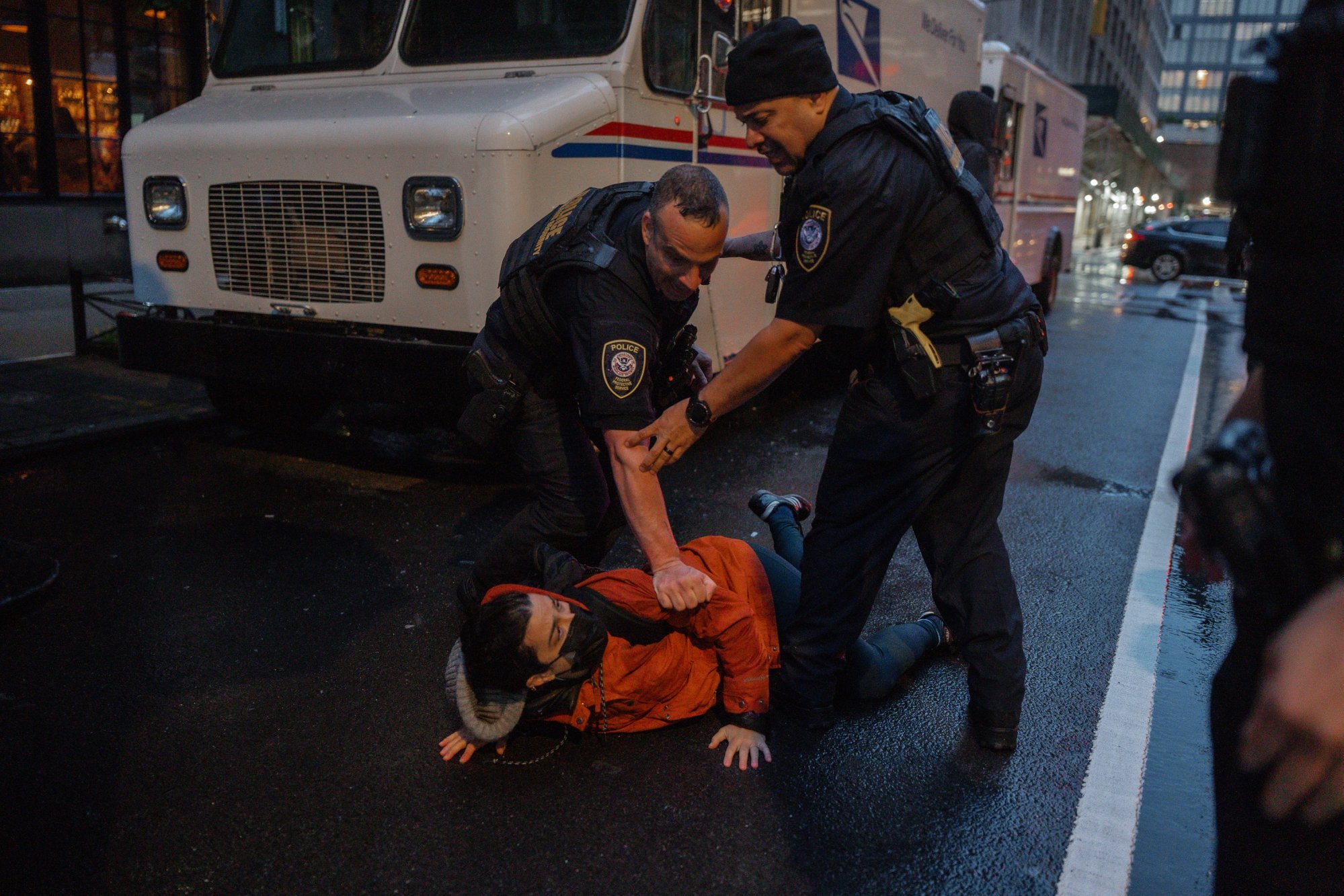US deportations: how safe are Filipinos – and what can Manila do?
An advocacy group said green card holder Lewelyn Dixon’s case exposed ‘neglect’ by Manila, urging it to help others held in detention centres

The release of a Philippines-born green card holder as ordered by a US judge after she was detained by Immigration and Customs Enforcement (ICE) has spurred calls for stronger support from Manila amid fears of the roll-out of the largest deportation programme in American history.
Lewelyn Dixon spent three months at an ICE detention centre in Tacoma, Washington state, after being apprehended on February 28 while returning to her home in Seattle following a trip to the Philippines.
Dixon’s lawyer, Benjamin Osorio, suspected her remand might have been triggered by an embezzlement conviction in 2001, for which she was sentenced to 30 days in a halfway house and fined US$6,400.
On Friday, an immigration judge in Tacoma ruled that the old judgment could not be used as a basis for Dixon’s deportation to the Philippines and ordered her release.
“The biggest thing to realise is she should have never been there in the first place,” Dixon’s niece, Emily Cristobal, said in a statement.
She should have never been there in the first placeEmily Cristobal, Lewelyn Dixon’s niece
US-based Filipino labour advocacy group Tanggol Migrante (Defend Migrants) Network said the verdict highlighted that Dixon’s strong character outweighed the potential reasons for deportation, and that robust family and community support had contributed to the cancellation of her removal.
“This was evidenced by the over 50 character reference letters that Tanggol Migrante submitted in support of Dixon,” the group said in a statement to This Week in Asia.
Her migration to the United States as a child was another contributing factor to her release, it said, as was the fact that she had not had a conviction in more than 20 years.
Tanggol Migrante accused the Philippine consulate of not providing “meaningful support” to Dixon, saying her case exposed “glaring shortcomings and outright neglect” by the diplomatic mission.
According to the organisation, seven more Filipinos were still at the Tacoma detention centre and have yet to speak to the embassy.
Dixon’s release comes as the Trump administration intensifies efforts to enact the largest mass deportation in US history by expelling migrants to countries other than their own – a move that has been challenged in federal courts and left the Asian-American community feeling vulnerable.
In May, a US federal judge temporarily blocked a bid by the government to send undocumented immigrants, including those from the Philippines, Laos and Vietnam, to Libya after an emergency appeal from immigration lawyers, who argued that the African nation was “notorious for its human rights violations”.
Tanggol Migrante said that having representatives from the Philippine consulate at deportation hearings could greatly improve the likelihood of detained Filipino migrants receiving more favourable rulings, such as earlier releases or deportation to their home country rather than elsewhere.
The US has also targeted documented migrants, creating a sense of unease among members of the Filipino and Asian-American community, according to James Zarsadiaz, an associate professor of history at the University of San Francisco.
“Generally, more recent Asian immigrants and those who are currently in the US with work visas or student visas are feeling vulnerable,” said Zarsadiaz, who is also director of the university’s Yuchengco Philippine Studies Programme.
“This new-found precarity is generating concern among those who before January 2025 likely didn’t feel as worried about their status, especially since they are regularly hearing or reading stories about fellow Southeast Asians being questioned, detained, or deported.”
But this might not be the case for other Asian-Americans – including Filipinos who voted for Donald Trump – as the US president’s immigrant policies were largely aimed at pleasing his “unabashedly loyal” base, Zarsadiaz said.
“If you are an Asian-American who voted for Trump in 2024, 2020 and 2016, it’s likely that the president is doing what they elected him to do. Much of Trump’s brand is going against the written and unwritten rules of American government and governance,” he said.

Tanggol Migrante said domestic workers and carers were now “afraid” to seek medical attention, run errands or even go to church due to the revocation of a Biden-era “safe spaces” regulation that exempted sites like healthcare facilities, schools and places of worship from raids.
The Philippine government should address “why Filipinos are forced to seek livelihood abroad and placed in these precarious conditions in the first place”, the network said. It recommended setting a national minimum wage of 1,200 pesos (US$21) a day.
Trump’s crackdown was not only linked to his campaign promises, the group said, it was also designed to deflect attention from the economic slowdown in the US.
Zarsadiaz said the US president could still change course on mass deportation is his Republican Party suffered a major setback in next year’s midterm election.
“If it’s proving to be a big problem for the Republican Party across the country – even though the party of the president usually loses seats in the midterms – the administration may dial it back,” he said.
“At the same time, Trump is not your ‘typical’ president and may just listen to his base who, so far, seem to agree with the policies he’s pushed and executive orders he’s signed.”
Meanwhile, Manila has insisted that it will not allow undocumented Filipinos in the US to be deported to a third country, saying “it’s not in our DNA to allow that to happen”.
“We Filipinos will never allow something like that to happen to us. We immediately communicated our desire with the US government that if there is any Filipino to be deported we would like to be informed,” Jose Manuel Romualdez, Philippine ambassador to the US, said on Wednesday.
“We will accept any Filipino no matter what their status is and no matter what they are.”